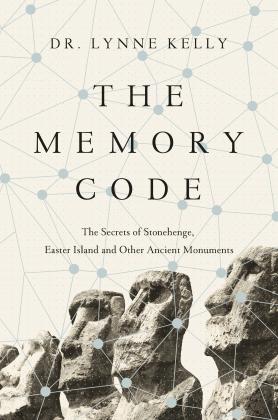
| Format | Hardcover |
| Publication Date | 02/07/17 |
| ISBN | 9781681773254 |
| Trim Size / Pages | in / 360 |
The discovery of a powerful memory technique used by our Neolithic ancestors in their monumental memory places—and how we can use their secrets to train our own minds
In ancient, pre-literate cultures across the globe, tribal elders had encyclopedic memories. They could name all the animals and plants across a landscape, identify the stars in the sky, and recite the history of their people. Yet today, most of us struggle to memorize more than a short poem.
Using traditional Aboriginal Australian song lines as a starting point, Dr. Lynne Kelly has since identified the powerful memory technique used by our ancestors and indigenous people around the world. In turn, she has then discovered that this ancient memory technique is the secret purpose behind the great prehistoric monuments like Stonehenge, which have puzzled archaeologists for so long.
The henges across northern Europe, the elaborate stone houses of New Mexico, huge animal shapes in Peru, the statues of Easter Island—these all serve as the most effective memory system ever invented by humans. They allowed people in non-literate cultures to memorize the vast amounts of information they needed to survive. But how?
For the first time, Dr. Kelly unlocks the secret of these monuments and their uses as "memory places" in her fascinating book. Additionally, The Memory Code also explains how we can use this ancient mnemonic technique to train our minds in the tradition of our forbearers.
Dr. Lynne Kelly is a science writer and an Honorary Research Associate at La Trobe University. She lives in Melbourne, Australia and is the author of Knowledge and Power in Prehistoric Societies (Cambridge).
Buy it now in print: Amazon Barnes & Noble IndieBound
Buy it now in ebook: Amazon Barnes & Noble Apple Kobo
"This fascinating narrative offers fresh interpretations of these physical spaces and their archaeological discoveries. Readers interested in preliterate cultures, Neolithic archaeological sites, and memory techniques will find this research thought provoking." Library Journal
"A plausible and provocative hypothesis on how methods of memorization may have laid the groundwork for many mysterious extant monuments." Kirkus Reviews
"Intriguing." Publishers Weekly
"Kelly not only analyzes a variety of techniques used by indigenous people, but also implements the ideas in her own life. Readers can readily implement her ideas and train themselves to use these mnemonic devices just as the ancient ones may have done so long ago." Shelf Awareness
"Kelly offers a new viewpoint, showing us people who, faced with a problem, developed an effective way of overcoming it." Cosmos
"Kelly presents a compelling argument that appears quite plausible. Some archaeologists might disagree, but Kelly is thinking outside of the box." Choice